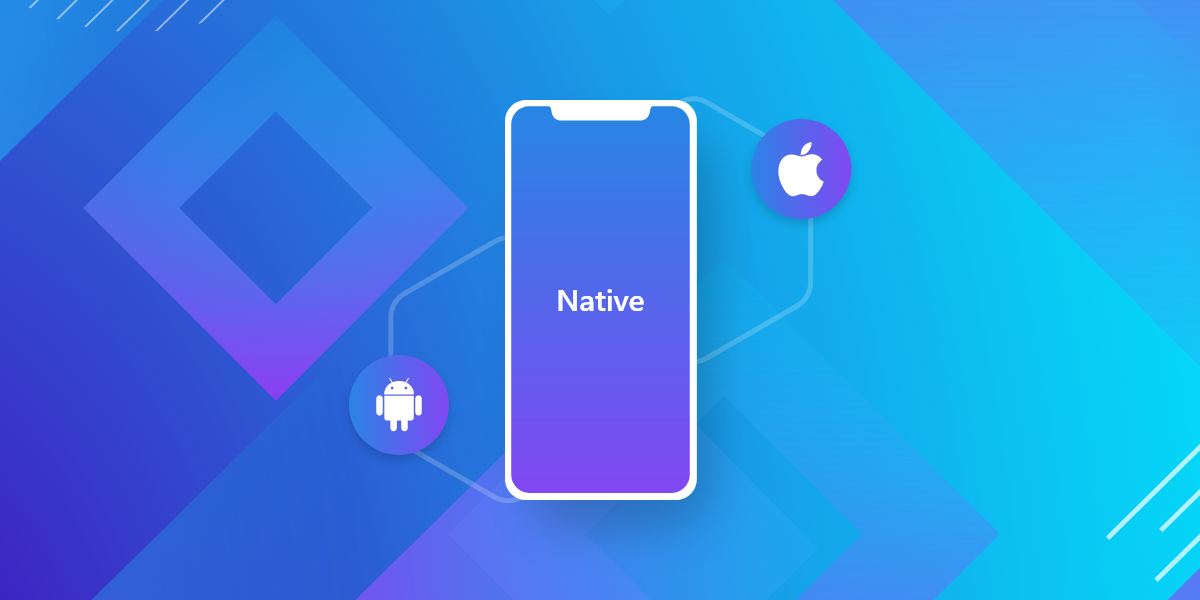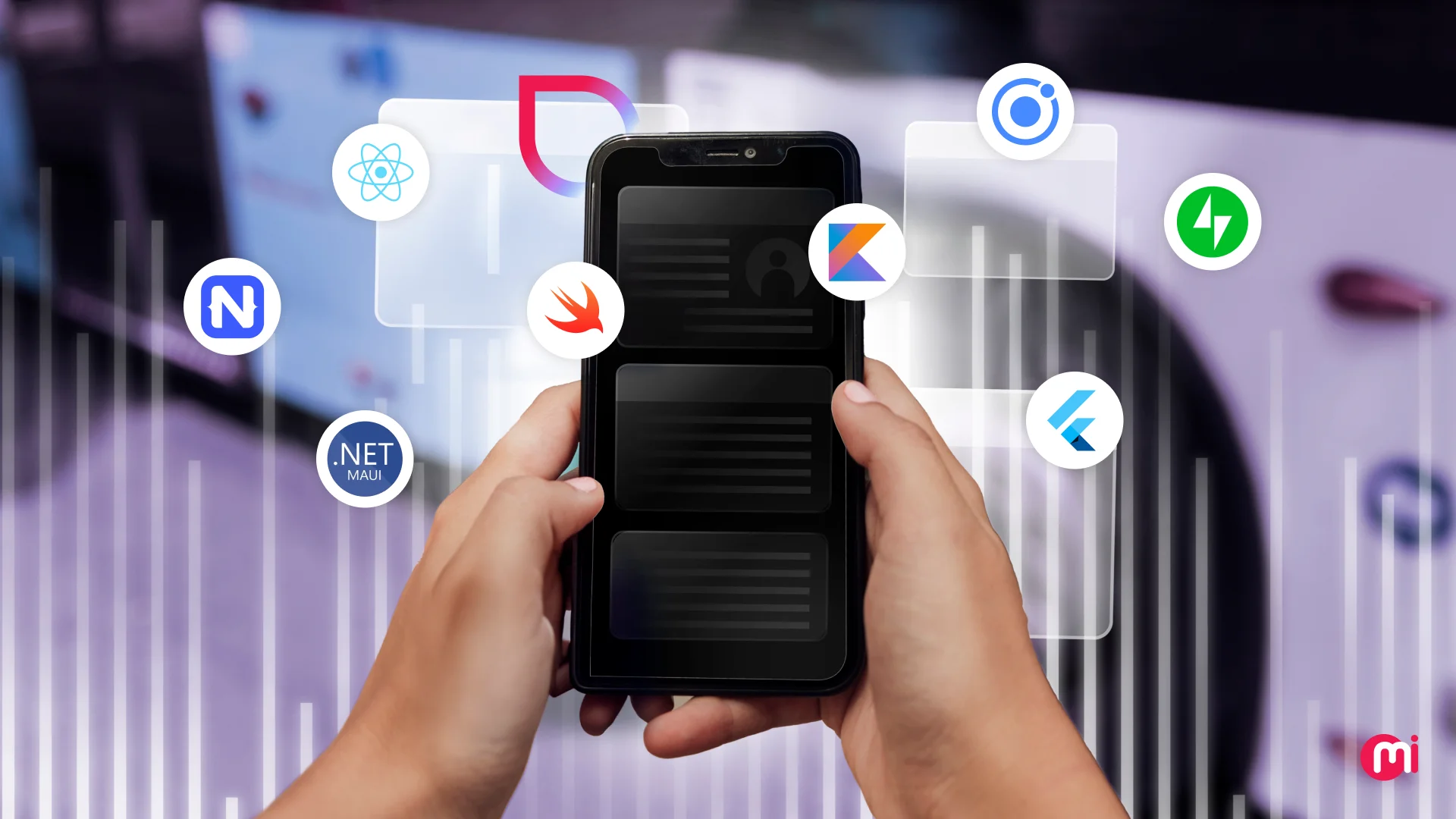Top Reasons Why You Should Go For Native Mobile App Development
- Mobile
- September 27, 2019
In this age of mobile apps, maximum organizations are prioritizing native mobile app development because people look for mobile apps for every use.
Many companies depend on mobile apps for serving their users. These days, businesses choose native apps because they easily combine with the whole ecosystem.
What is Native Mobile App Development?
Native applications are written in languages particular for the platform. In terms of Android, native applications are developed with the use of Kotlin or Java. Native iOS apps are developed using Swift or Objective-C.
Such types of apps are completely customized for taking complete benefits of the platform and offering users an amazing experience.
Both Google and Apple offer app developers their SDK, interface elements, and development tools. Maximum companies will invest in native app development due to a plethora of perks provided compared to other kinds of apps like Web or Hybrid.
Since mobile apps are highly necessitous for organizations, they must know the pros and cons before selecting an app development platform.
Prime Reasons to Choose Native Mobile App Development

Native app development may be an amazing option for you in case you want to offer users the best experience in terms of the feel and appearance of your app.
Why? Because when an application thoroughly follows the instructions for famous platforms, users quickly get to know the ways of using it.
However, there are ample other convincing reasons to embrace this platform for app development:
1. Security
While maximum hybrid apps depend just on system browser security, cross-platform and native apps are safeguarded by various layers of an OS, which makes them hard to misuse.
Moreover, they don’t rely on any third-party system, utilizing just official APIs that have been thoroughly examined across different system versions.
Because of the long building of official platform SDKs, it’s more possible that they can reduce every growing security problem.
Ultimately, official platform launches also occur less frequently than framework launches. With lengthy launch cycles, you can anticipate dependable, properly examined, and more secure software.
Because of insufficient time, shorter launch cycles can be less thoroughly ready with the choice of getting solved later.
2. Maintenance
Maintenance of a native app is a bit complex unlike a hybrid app’s maintenance because the latest version of the app should be launched.
Read also: The Importance of Mobile App Maintenance
However, users can get information about the most recent update with ease. Additionally, native apps upload the maximum content on installation.
Thereby, your game or messenger doesn’t require being updated continuously, unlike the mobile shop or magazine which is supposed to be hybrid apps. So, everything relies on the app type.
3. Performance
Previously tech leaders like Facebook and LinkedIn had invested in HTML5. After that, they regretted their decision because of the high popularity of standalone native applications.
Native applications are more responsive, quicker, and offer a greater user experience. These apps operate quicker since they are written in languages specific to the ecosystem of the platform.
Since these apps can access to unique elements and APIs that are optimized for various devices, they run efficiently and seamlessly.
Contrarily, hybrid apps rely on native browsers like Android WebView or UIWebView. Due to reliance, they are not as quick as native apps.
4. Fewer Bugs
It’s harder to maintain two individual apps in a single codebase than it is two apps in two codebases. Using native app development, you have less reliance for bugs to occur as you won’t depend on a cross-platform tool like Cordova or Xamarin.
Hybrid applications can access to hardware through a bridge that sometimes slows app-building down and can make an annoying user experience. This problem is seen when new iOS and Android versions are launched.
Native app developers can access new SDK (Software Development Kits) for starting developing their apps with the latest features. Due to this lead time, native app users can access new platform features after updating their OS.
5. Unified UI/UX
For a native platform, UI or UX will be unified and properly learned by the users. On this platform, the entire broader UI will be standard in the native applications.
Read also: Importance of UI/UX Design in Mobile App Development
Hence there will be a reduced learning curve and people will understand the ways of navigation in your application. User experience is also better due to better performance.
At the time of developing native applications, designers and developers find it simple to apply the best standards and practices. Because of all these reasons, native apps provide better user experience and user interface in comparison with hybrid apps.
6. Access to Complete Device Features
Native apps are built for their specific platform, taking complete benefits of the features of the OS and the software.
These apps can directly access the device hardware like microphone, camera, GPS, etc. hence they are quicker in the application, which finally offers better UX.
Another big benefit of selecting native mobile app development is push notifications which go through the APNS (iOS server) that you require your app bundle ID and similar with GCM (Google’s Cloud Messaging).
7. Scalability
Native apps can be configured quickly because they should be compatible with a single platform.
Even in case, there are two native assignments, they are different, hence, you don’t require worrying regarding the compatibility of app reliance between versions for various platforms (iOS, Android) and you are free to utilize every new feature on a provided platform.
With fewer limitations, it becomes easier to scale. However, in case you wish to combine the advantages of both native and cross-platform solutions, you may need to begin natively and then maximize a few smaller app modules with extra cross-platform code.
This is a secure method utilized by a few tech giants on the market such as Airbnb and Facebook.
8. Offline Performance
Going native is the best option if there is no connectivity. Planners, organizers, navigators and even games can perform offline as their content has been already downloaded.
The in-browser caching is supported in HTML5 but you are still not much free like using a native app.
9. Stability
As iOS and Android are flagship items of their respective organizations, they will constantly assist and enhance the entire platform for users and the app builders.
Since these platforms completely assist native applications, they will be quite more stable in terms of use, maintenance, and app development. Users will experience few crashes and glitches and the app will function seamlessly.
Contrarily, third-party organizations develop cross-platform frameworks. In case they can’t acquire ample profit from such frameworks, they may either stop supporting it totally or slow down the framework building.
10. cost
A native app always pays your way. This is possibly the most crucial thing for a developer, entrepreneur or both at once.
Judging from the aforementioned points, it can be concluded that a native app will be a little costlier than a hybrid one; that you have a confined budget and you would better spend it on promoting.
Undoubtedly, the first type will cost you more. You may know that native apps offer good user experience. Since these apps need more effort and time to be built, they are recommended to be paid while hybrid apps are generally launched to be free.
Ultimately, you can make a profit from your amazing native app.
Wrapping Up
Looking to provide your users with an app that ensures reliability and enhanced stability? Native app development is your best choice. However, if your priority is speed to market and cost-efficiency over a fully optimized user experience, a cross-platform app might be the ideal solution.
At MindInventory, as a leading mobile app development company, our expert developers are well-versed in industry-leading mobile technologies and are ready to guide you through every step of your project. By thoroughly analyzing your project requirements and understanding your business goals, our team will help you choose the right mobile app development technology tailored to your needs.
Got a project in mind? Share your requirements, and let’s schedule a quick call with our mobile app development experts today!
FAQs About Native Mobile App Development
Native app development is the development of an application that runs on particular devices and platforms. Native app for Android is developed using Java or Kotlin and native app for iOS is developed using Swift or Objective-C.
Native app development has numerous benefits over hybrid app development. It offers an incredible user experience, best performance, and user interaction. It has the most possibilities for customization to offer users a more personalized experience.
There are many reasons to choose native app development over a hybrid app like great user experience, better security, less maintenance, best performance, scalability and so on. In spite of the higher development cost, native apps offer more benefits in the long run.













